14 January, 2021
Beyond Probiotics: 10 Key Factors in Healing Your Gut
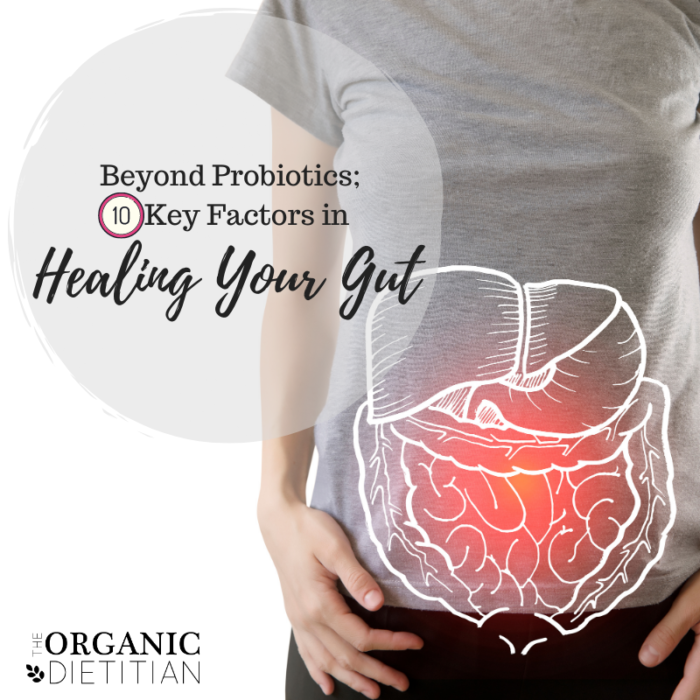
Well it’s no big secret that a healthy gut is essential for overall health and wellness — studies have linked gut health to:
- The immune system
- Autoimmune conditions
- Mental health
- Hormonal balance
- Heart health
So no wonder you’ll hear the term “gut healing” thrown around quite a bit in the health and wellness world.
But what exactly does “gut healing” mean? What’s required?
When I was working to heal my gut and remedy my chronic bloating, I thought I was doing everything right. I was drinking bone broth plus taking probiotics, digestive enzymes, and L-glutamine.
Just as gut health impacts so many other aspects of our physical health, it runs in the other direction too!
Gut health extends far beyond popping a probiotic and sipping on some bone broth, and there was so much I was missing.
It wasn’t until I started considering the other pieces of the puzzle that I finally felt relief and was able to truly heal my gut. There are numerous considerations, but lets talk about the top 10 today!
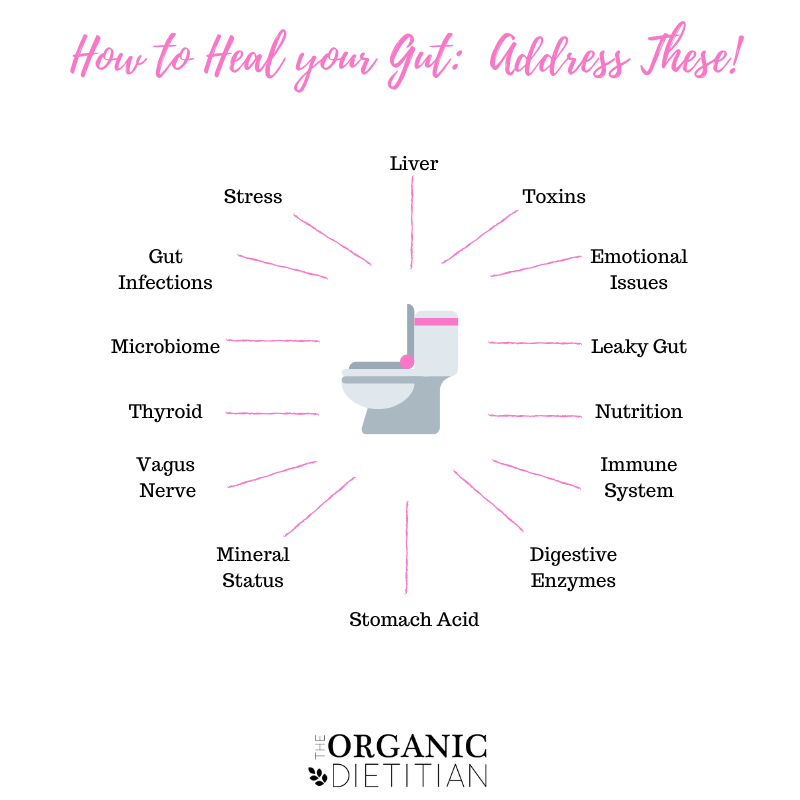
10 Key Factors In Healing Your Gut
Gut infections
Bacteria, fungus/yeast, H.pylori, parasites, worms, and viruses are much more common than you may think and they can all damage the gut and prevent healing if not properly identified and addressed. It is important to note the gut infections aren’t the deep root causes. Yes they can contribute to symptoms and people can find relief when they address these bugs but you also must address what caused them in the first place. You see the body has protection mechanisms in place to prevent these types of pathogens from setting up shop. Things like your immune system, stomach acid, a good diet help keep gut bugs in check. But when we become a weak host and our resiliency becomes decreased due to nutrition and other lifestyle factors then we are at risk for developing gut infections.
Unfortunately, these can often be difficult to identify with testing and no test is perfect when it comes to identifying gut infections. This is why we don’t just test but also us a combination of assessing symptoms while helping clients increase their resiliency so the body can address bugs more easily. The Organic Dietitian team uses the GI Map to get a picture of the gut microbiome, including the “bad guys” that may be preventing healing while taking you and your symptoms into account too.
Microbiome
Are you low in the healthy or “good” bacteria that resides in the gut microbiome?
Yes, this is where people often thing that simply taking a probiotic is the way to good gut health. That is definitely not the case and now studies are showing that taking too many probiotics can actually make things worse and start moving gut bacteria in the wrong direction.
Related Post: How Probiotics Work (and Why They May not Fix Your Digestion)
Thyroid
Poor thyroid function can decrease motility in the gut and contribute to constipation. Thyroid issues are very common yet go largely undiagnosed. We often experience symptoms like cold hands and feet, fatigue, hair loss, constipation, dry skin, or weight loss resistance which can all be signs of a sluggish thyroid. Yet get testing (improperly by the way) and are told the thyroid looks “normal.”
As I always say, the thyroid doesn’t just stop working for no reason so this is where a whole body approach comes into play when it comes to addressing thyroid dysfunction.
Stress and Nervous System
Chronically high levels of the stress hormone cortisol can break down the protective lining of the gut and suppress stomach acid production, key for proper digestion.
Another consideration that is rarely discussed is the connection between gut health and your nervous system. Being stuck in fight or flight mode prevents us from resting and digesting.
We see this all the time in The Organic Dietitian practice and it’s something to really consider. So many of us tend to write stress off as “normal” even when it may be running out of control. But it isn’t enough to try to supplement, we need to address as many internal and external stressors as possible to support the adrenals. We help our clients investigate where there stressors are coming from and how to minimize them as much as possible. We also teach them how to regulate their nervous system properly.
Related Post: Your Autonomic Nervous System: A Missing Piece to Your Health Journey
Minerals
Essential minerals like magnesium, zinc, and selenium can impact the gut. Unfortunately, most people are deficient in these minerals.
Ironically, impaired gut function can prevent proper absorption of nutrients like these minerals! While working to heal your gut, a healthy diet and smart supplementation can help. We like to run HTMA (hair tissue mineral analysis) tests with all our clients to help assess mineral status.
Stomach acid
With all the anti-acid medications on the market, we’re led to believe that stomach acid is a bad thing. But this couldn’t be further from the truth!
Not only is adequate stomach acid required for digestion and so digestive health, but it also protects against pathogens. There are many possible reasons for low stomach acid so investigating your root causes is key!
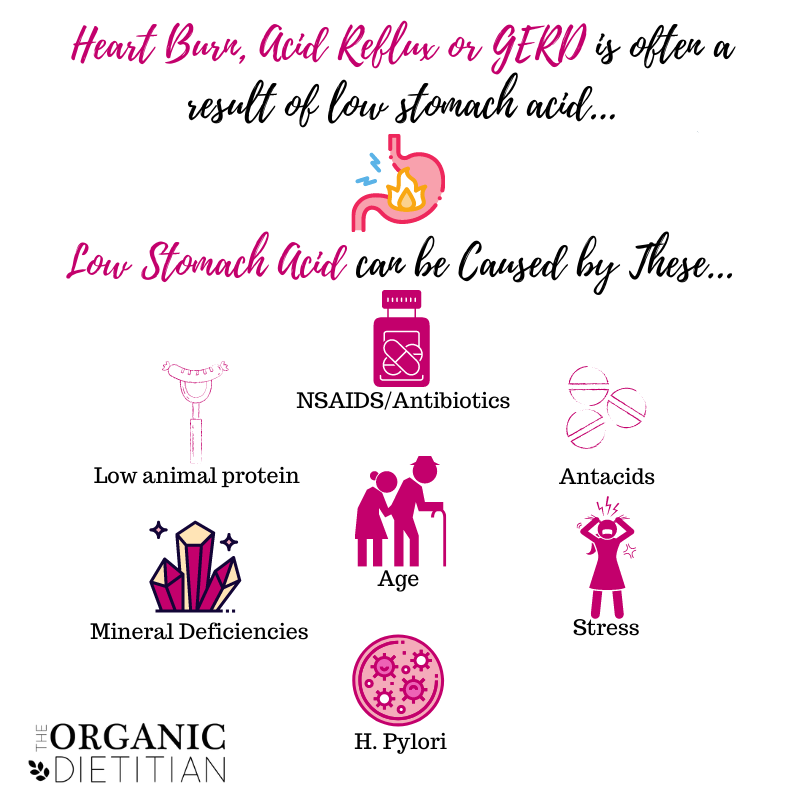
Digestive Enzymes
Like adequate stomach acid, digestive enzymes are required for proper digestion. Low levels can contribute to indigestion, inflammation in the digestive tract, and malabsorption.
Leaky gut, toxins, stress, inflammation, and low stomach acid can all contribute to a deficincy in digestive enzymes.
Nutrition
It should be no surprise that an unhealthy diet does nothing good for the gut! It can cause inflammation, throw the gut microbiome off balance, and decrease stomach acid production.
One important first step in addressing gut health is eating to reduce inflammation. What does this mean exactly? Unfortunately there is no one size fits all here. What might cause inflammation for me will be different than what causes inflammation for you. There is no test that you can take that will tell you exactly what you need to eat.
Did you know fiber can be like sandpaper to an inflamed gut? So what specifically is a “healthy” diet for someone trying to heal their gut might be completely different from what you think. Some clients need to actually reduce or even eliminate fiber rich foods initially to help reduce inflammation and sooth an irritated gut.
Liver Health
Your liver is actually part of your digestive system and helps make bile so you can break down fat. If the liver isn’t properly creating or releasing bile, it can lead to indigestion and inflammation in the digestive tract.
Related Post: Keep your Liver Healthy with these 5 Support Tools
Toxins
Gut microbes are quite vulnerable to harm from external influences such as environmental toxins. We can’t eliminate toxins 100% but we can work to minimize our exposure as much as possible. How exactly to reduce toxins is something we address when we work with all our clients because it is that important for all areas of health including the gut.
Navigating and addressing digestive issues and gut health can be complex, confusing, and frustrating when you try to go it alone.
But it’s our job to take all the guesswork and stress out of the equation for the women we work with.
Ready to dive deep into your health? To take a root cause approach to your digestive health and symptoms? To know exactly what your body needs for true healing?
Now let’s keep the conversation going in the comments below!
Do you struggle with digestive health?
Other related symptoms?
Have you started your gut healing journey?
Have you considered the 10 factors discussed here?
Any questions?
Please let us know so we can continue guiding you in your gut health journey!




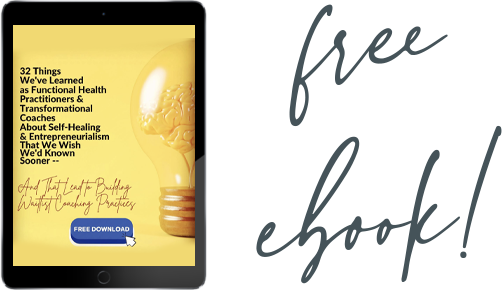

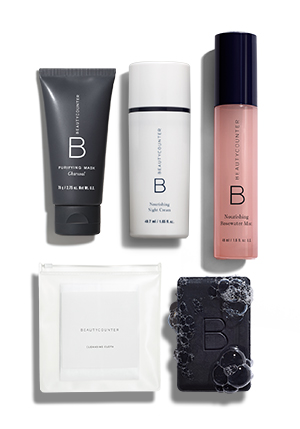
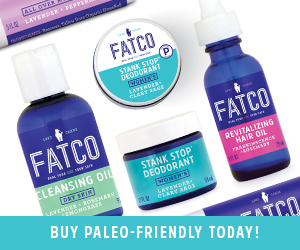







 80% of chronic dis-ease is rooted in stre
80% of chronic dis-ease is rooted in stre
 As
As 

What’s the most effective natural way to heal silent reflux ? I’ve tried the licorice root, ginger , artichoke leaf combo, but worried that the histamine in both the licorice root and ginger may be what causes some elevation in my eosinophils , I’m obviously having allergies with something whether it’s foods. supplements, environmental etc. I don’t want to take acid reducers so I’m at a loss.
You need to address the cause. Those things might reduce symptoms but nothing will full address it if what is causing reflux is still a problem. There are a number of possibilities so you need to figure out what your cause or causes are specifically. I don’t recommend acid reducers and stomach acid is a critical part of gut health.